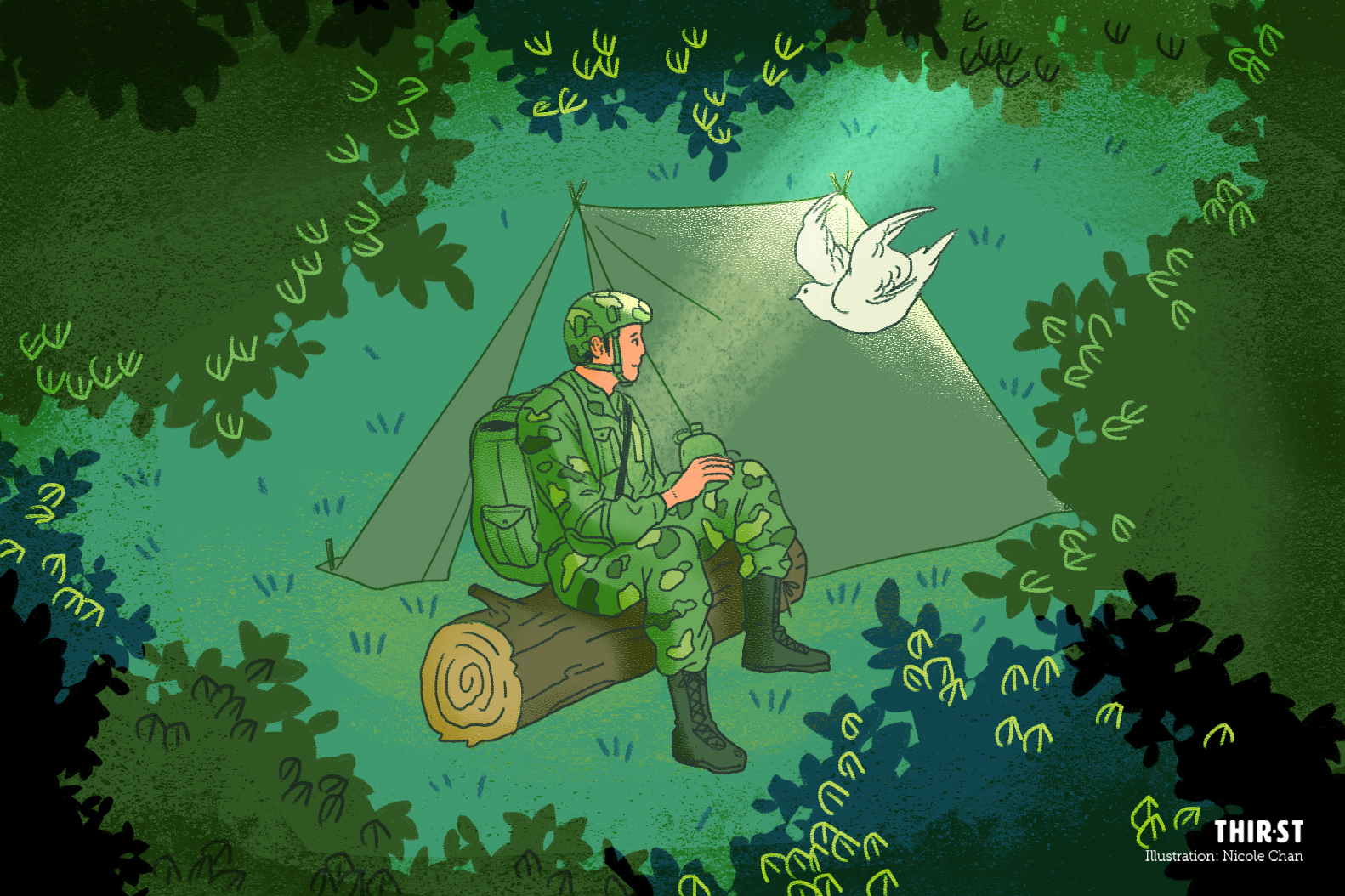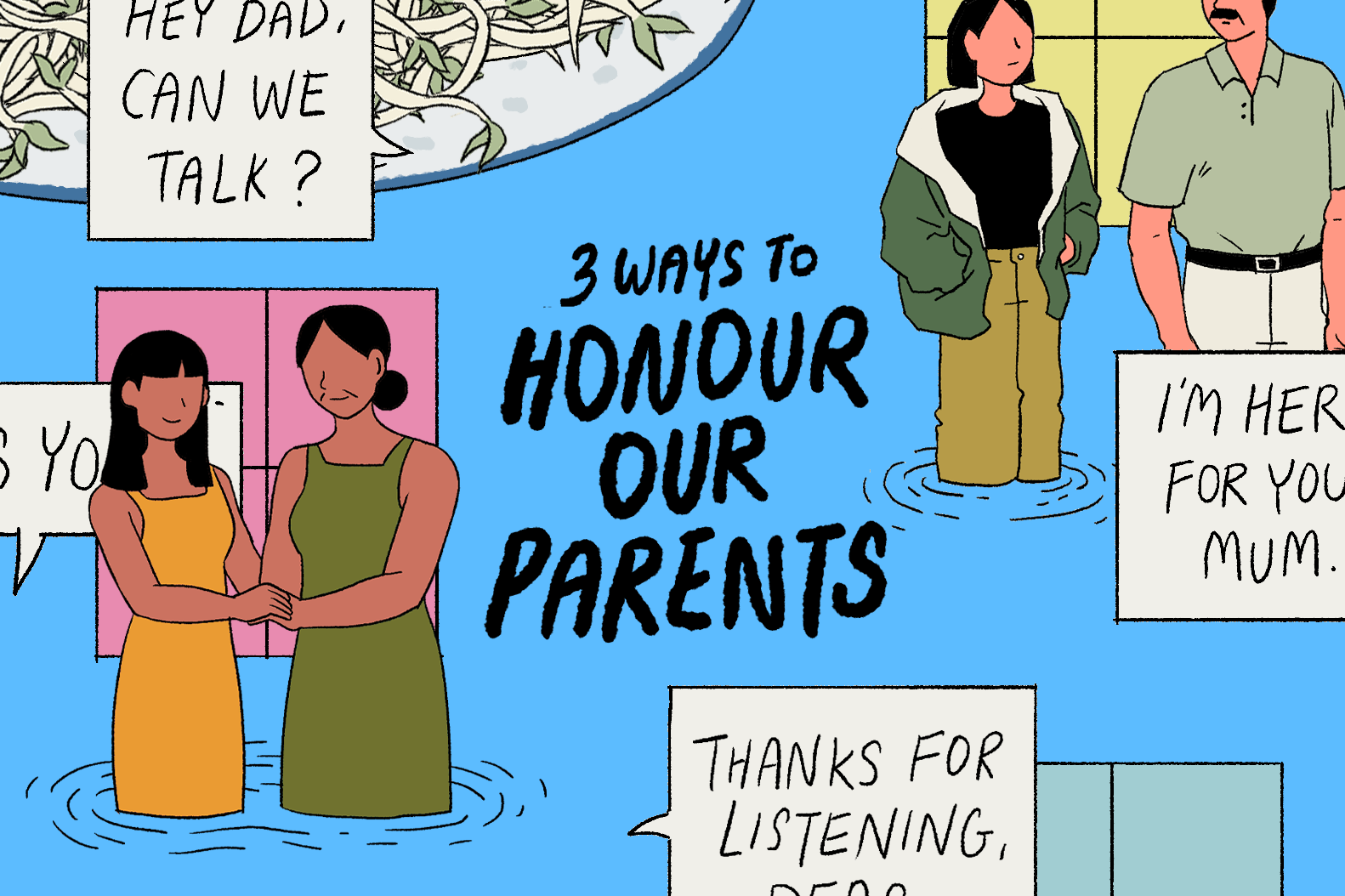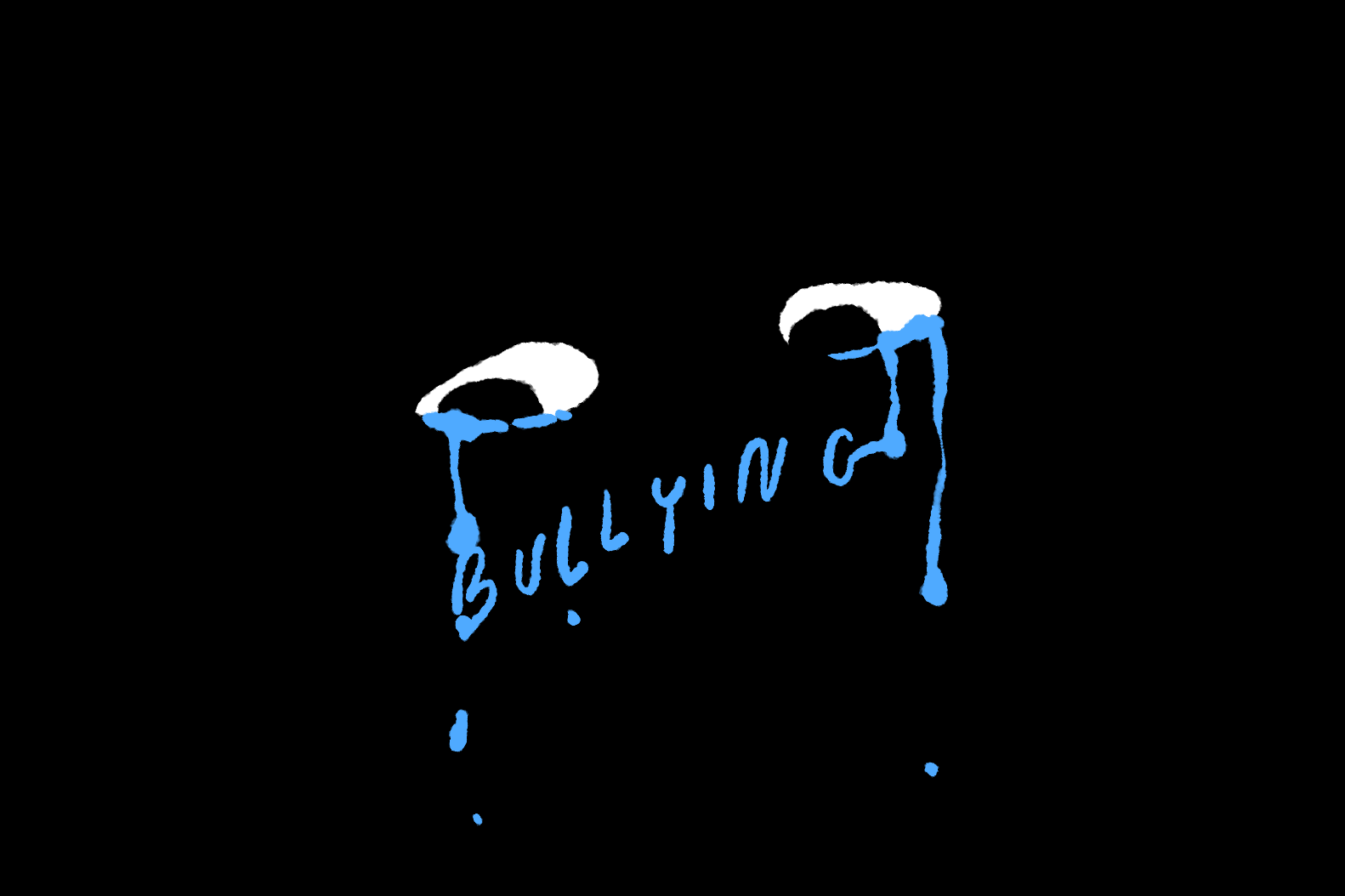Most people say that every Singaporean son goes into National Service (NS) a boy and comes out a man.
Some say that NS is a void, and others still just shrug their tired shoulders and utter, as if it were a sigh: “It is what it is”.
What it is, is two years of mandatory conscription into the Singapore Armed Forces.
But what matters, as I was told, is what you make of it.
Prior to enlisting, my church had a commissioning ceremony for all NS Enlistees. I thought little of it then, but I see now that it made all the difference in my perspective of NS.
At the service, we were commissioned to stand firm on our beliefs, be unswayed by negative influences and to be soldiers in a higher army. The commissioning helped me to see NS as a personal ministry.
It gave me a macro perspective on the two years that I had as a Full-time National Serviceman (NSF): instead of an NSF Christian, I was a Christian NSF.
3 THINGS I LEARNED IN NS
1. I realised I was “different”
I’ve always heard pastors in church tell us that we should be the salt and light of the earth such that others will be able to see that there is a difference in the way believers live our lives.
Fortunately (or not) as I’ve realised, I’ve been in a very Christian environment for so much of my life. Here, Christian practices and beliefs are accepted: morning devotions and prayer are commonplace and faith is quotidian.
As such, suddenly finding myself surrounded by testosterone-filled dudes from all walks of life was a culture shock.
How is it possible to show that you disagree with something said, without coming across as self-righteous?
Through our interactions, different world views bubbled to the surface. I saw it in a conversation on our dreams and aspirations in which getting filthy rich seemed to be the purpose of human existence.
I also heard it in the recounts of the wild, alcohol-infused, vice-laden weekends of hedonistic pleasure.
Then there was the locker room talk that every guy knows all too well, and the games of office politics played (all of which are seasoned with expletives and the most colourful language).
For the first time in my life, I felt like I was sticking out like a sore thumb. And for the first time in my life, my peers thought so too. They asked me whether I was a Christian without me even saying so.
I suddenly felt that I was “in the world but not of the world”.
It’s a tricky tension to navigate.
Thankfully, I was not outcast because of my faith.
Yet, how is it possible to show that you disagree with something said, without coming across as self-righteous? How do you form genuine friendships, without endorsing a habit you know to be sinful?
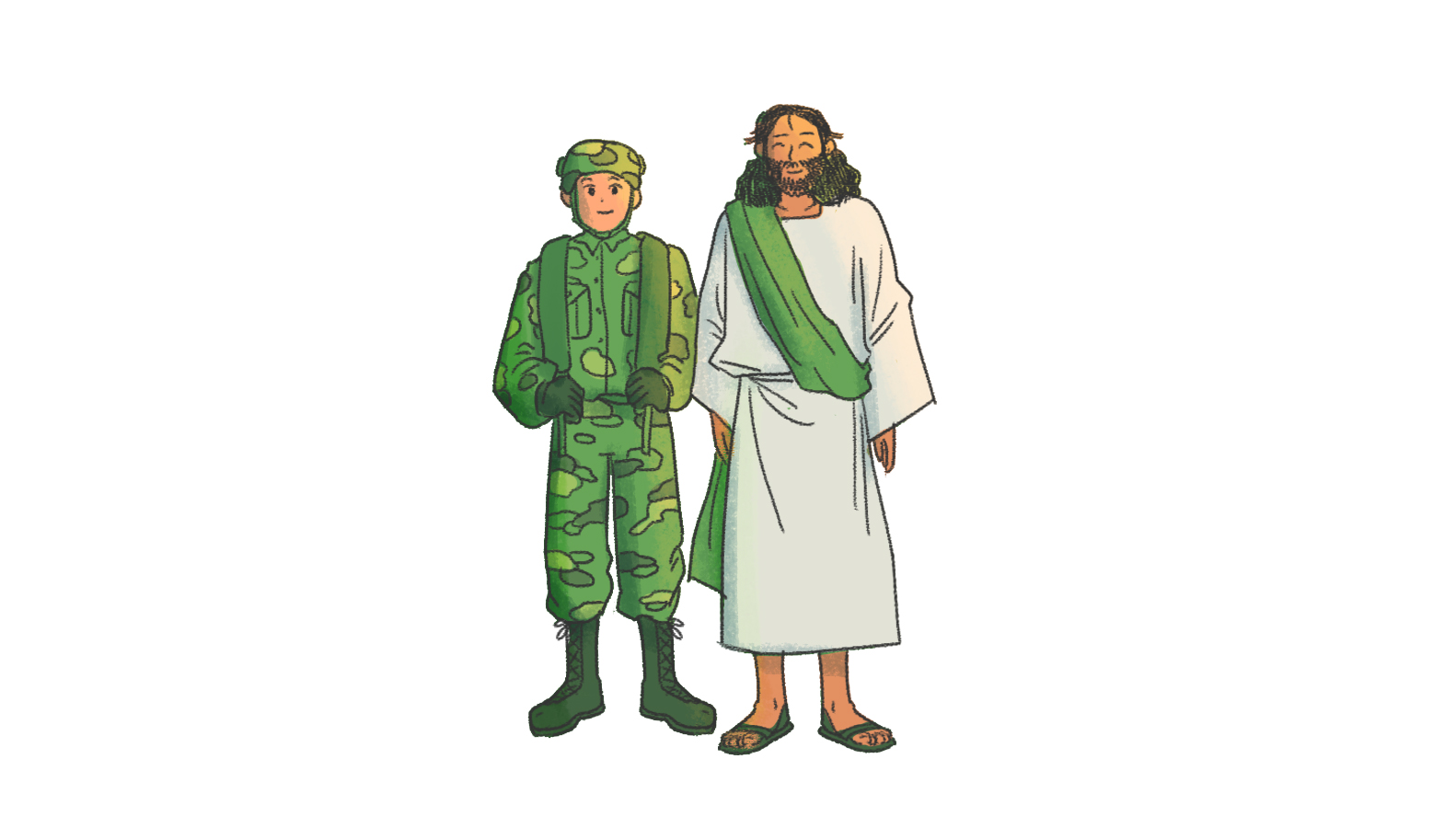
I am always taken by how radical Jesus’ ministry was when I read through the gospels.
He shocked everyone when He hung out with tax collectors and touched lepers. Imagine the disciples’ faces when He washed their feet!
In the upside-down kingdom of God that Jesus ushered in, He embodied servanthood and true humility.
How do you form genuine friendships, without endorsing a habit you know to be sinful?
In practical terms, living out the gospel might translate to volunteering to help your buddy, the toilet IC, clean the toilet. Or it might be volunteering to fill the ice box for tomorrow morning’s physical training.
No, people won’t suddenly ask you if you’re a Christian after putting your hand up, but you’d be embodying the servanthood and humility of Jesus.
In other practical terms, take heed of Jesus’ radical challenge to the law and sin, where He points out that “everyone who looks at a woman with lustful intent has already committed adultery with her in his heart”, and steer clear of trashy locker room talk.
Encourage a brother, instead, to be a gentleman – to do better than use words which objectify, pervert and debase.
Realising I was “different” made me see that my Christian worldview, value systems and belief were fundamentally different.
I had never been more thankful for all the ways my faith had guided my actions – and in ways I had never noticed before! It helped me learn that my faith was more important to me than I had known.
Being “different”, done right, also makes for great opportunities to share the reason for your actions too, because you may leave others pondering the source of your difference.
2. I learnt to prioritise time with God when I had less time for myself
As a trainee, your time is not your own.
Naturally, spiritual disciplines become exponentially harder to maintain. It means sacrificing time and energy when they are already fleeting!
Sometimes, that means waking up 15 minutes before reveille to read daily devotions under a phone torchlight or spending the last 15 minutes of the day journaling.
Another important thing I tried to do was to pray throughout the day, whether it was in the stillness of the jungle at night, while holding a plank or while running a 2.4.

Maintaining these spiritual disciplines made those trying times more bearable. I was filled with peace when I should not have been.
At times, the knowledge that I was to work heartily, as for the Lord and not for men, gave me the strength to press on. It often made me think about what it was that God was trying to teach me.
Frequently, I think of a quote by Martin Luther that goes: “I have so much to do that I shall spend the first three hours in prayer.”
Time with God, especially when time is fleeting, made all the difference to my days as a trainee. It helped me confirm in my heart what was important to me.
I grew more sensitive to His daily mercies and the invisible ways in which God was at work.
3. I better understood warfare – physical and spiritual – through NS
I may never march in the infantry
Ride in the cavalry
Shoot the artillery
I may never shoot for the enemy
But I’m in the Lord’s army!
Have you ever heard this children’s song? Or maybe you’ve heard the phrase, “fought the good fight”.
If so, you’re probably familiar with how the themes of warfare and kingdom are present in the Christian context. In the Christian context, warfare is always of a spiritual nature.
Although I wish I didn’t have to leopard crawl through mud, fire live rounds and march in file to fully understand that idea, having lived through a military experience definitely deepened my understanding of the metaphor.
Being a soldier made my understanding of “being in Christ’s army” so much more profound.
As a soldier, you are a part of something much bigger. Some of the fundamental things required of you are a loyalty to your cause, diligence in training, discipline and a respect for authority.
If I were to be loyal till death for my country, how much more should I give for the sake of my identity in Christ and my citizenship in heaven?
If I were to be disciplined in training and regimentation, how much more seriously should I take serving my Lord and King?
If I were to comply with the orders of my superiors, how much more should I submit to the one who has been given “all authority in heaven and on earth”?
Commit these two years to Him and let Him refine you through the flames so that your faith can be strengthened
Recently, in reading through the Old Testament, I also realised that Israel’s journey was also a very political and militarised one.
Reading how Israel’s source of military might over Canaanites came from faith in Jehovah suddenly made the whole metaphor much more real to me, a Christian soldier.
No doubt, following Christ today, just like in the days of the Old Testament, is much like fighting a war, albeit in a different sense.
Seeing that Israel’s source of military might was their faith, I prayed that my faith would be my source of strength in the Singapore Armed Forces too.
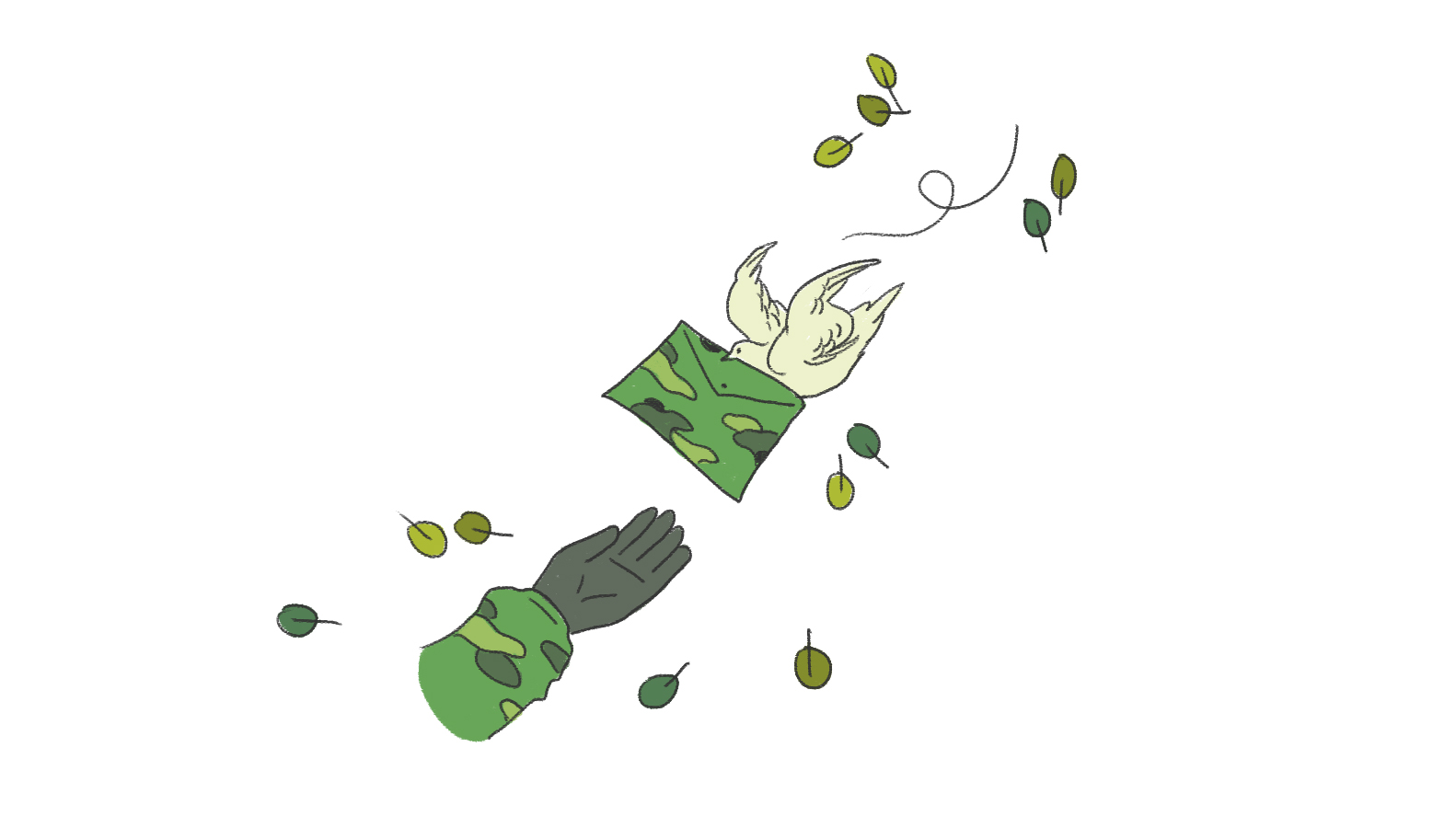
Dear soldier,
Yes, NS may force you into unfamiliar environments with unfamiliar people. Yes, NS may push you to your limits. Yes, NS may strip you of your freedom and test your faith.
But God our Father knows exactly how to test us for growth and give us grace. Let Him be your right marker and take your dressing from Him!
Look to your brothers in Christ who are going through the same challenges too for mutual support and encouragement too.
Maybe NS is what it is. Maybe NS is what you make it out to be. I think NS is more of what God makes it out to be. National Service is a crucible: it turns to dust what it cannot refine, and refines what it cannot turn to dust.
Commit these two years to Him and let Him refine you through the flames so that your faith can be strengthened – it certainly can.
- What’s the first thing that comes to mind when you think of the words “National Service”?
- How might God want to use your future in the army or redeem those years spent there?
- Know someone who’s going through National Service right now? Reach out this week and send some encouragement their way!


